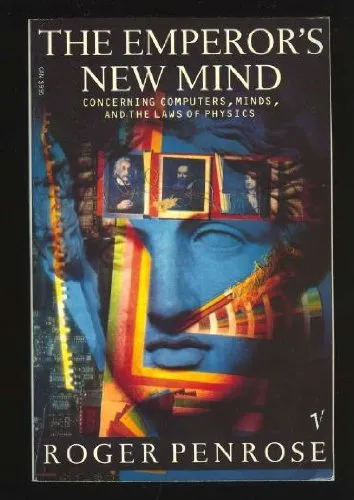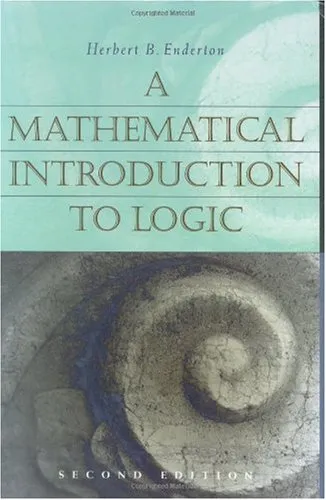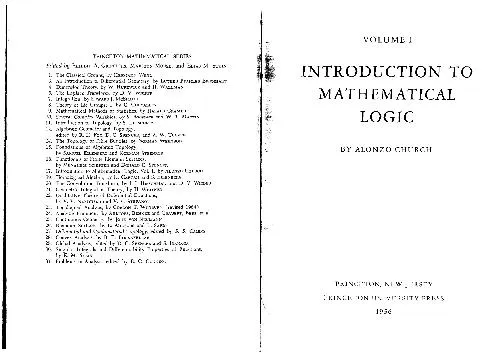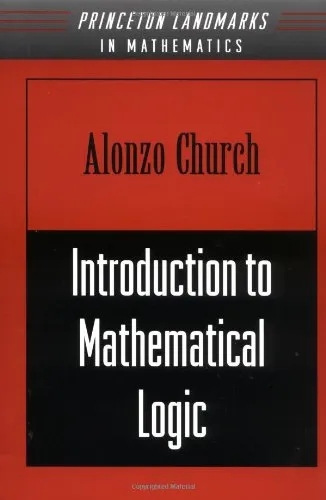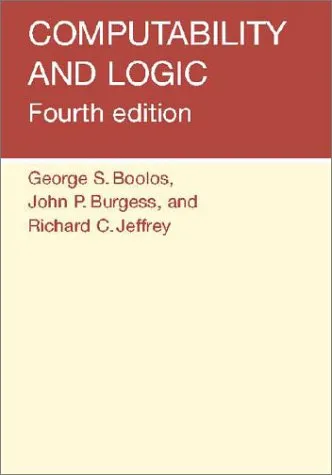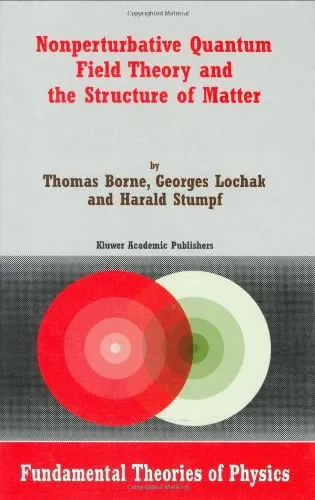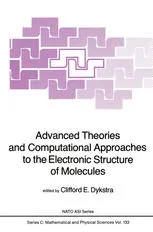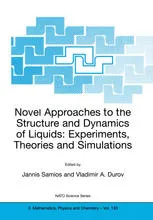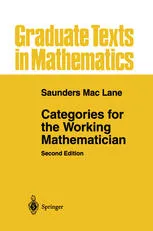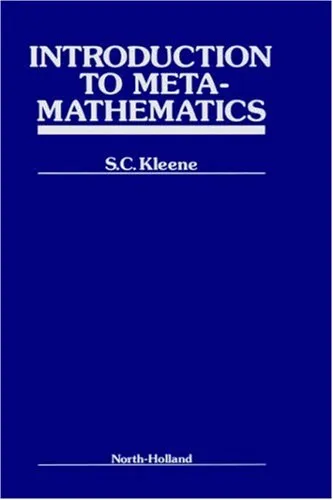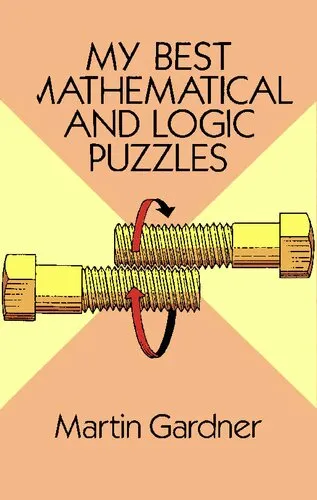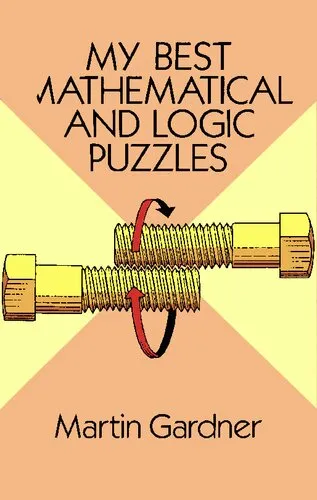The Emperor's New Mind: Concerning Computers, Minds, and the Laws of Physics
4.2
بر اساس نظر کاربران

شما میتونید سوالاتتون در باره کتاب رو از هوش مصنوعیش بعد از ورود بپرسید
هر دانلود یا پرسش از هوش مصنوعی 2 امتیاز لازم دارد، برای بدست آوردن امتیاز رایگان، به صفحه ی راهنمای امتیازات سر بزنید و یک سری کار ارزشمند انجام بدینکتاب های مرتبط:
معرفی کتاب 'The Emperor's New Mind: Concerning Computers, Minds, and the Laws of Physics'
کتاب 'The Emperor's New Mind' نوشته راجر پنروز یکی از آثار برجستهای است که به بررسی رابطه بین هوش مصنوعی، ذهن انسان و قوانین فیزیک میپردازد. در این کتاب، پنروز که یک ریاضیدان و فیزیکدان برجسته است، به چالشی باورنکردنی و جذاب در درک ماهیت ذهن و هوش پرداخته است.
خلاصه مفصل کتاب
پنروز در این کتاب به بحث نظریات مختلف پیرامون قابلیتهای بالفعل و بالقوه کامپیوترها در پرداختن به ماهیت پیچیده ذهن و آگاهی انسان پرداخته است. او با بهرهگیری از استدلالهای ریاضی و فیزیکی، تلاش میکند تا نشان دهد که ذهن انسان نمیتواند به سادگی توسط ماشینها تقلید شود. پنروز معتقد است که گذر از پیچیدگیهای فیزیکی به درک ذهنی نیازمند چیزی فراتر از الگوریتمهای محاسباتی سنتی است. مطالعه جزئیات فیزیک کوانتومی و نقش آن در هوش و آگاهی از جاذبههای اصلی این کتاب است.
نکات کلیدی
- استدلال درباره ناکارآمدی کامپیوترهای کلاسیک در رسیدن به ماهیت آگاهی و خلاقیت انسانی
- نقش فیزیک کوانتومی در درک ذهن و آگاهی
- تفاوتهای بنیادی بین ماشینها و ذهن انسان
- تاثیر نظریه پیچیدگی محاسباتی بر تواناییهای ادراکی و شناختی
جملات معروف از کتاب
"اگر ذهن انسان صرفاً ماشینی دقیق بود، پس چگونه میتواند خلاقیت حقیقی را تجربه کند؟"
"قوانین فیزیک، آنجا که به ادراک و آگاهی میرسد، از حد محاسبات دیجیتال فراتر میروند."
چرا این کتاب اهمیت دارد
این کتاب به دلیل نگرش متفاوت و عمیقی که نسبت به هوش مصنوعی و درک بشری دارد، اهمیت ویژهای پیدا کرده است. پنروز از دیدگاهی علمی و فلسفی به طرح سؤالات بنیادینی میپردازد که در مورد مرزهای تواناییهای کامپیوترها و ذهن انسان وجود دارد. او با تلفیق فیزیک، ریاضیات و فلسفه، خواننده را به تفکر درباره ماهیت واقعی آگاهی و چالشهای پیچیده تحقیقات آینده دعوت میکند.
Introduction
Roger Penrose's "The Emperor's New Mind: Concerning Computers, Minds, and the Laws of Physics" is a profound exploration of consciousness, artificial intelligence, and the fundamental laws of physics. The book challenges the prevailing conception that human consciousness can be fully emulated by machines, presenting an intricate tapestry woven from threads of quantum mechanics, mathematics, and philosophy. Penrose, celebrated for his contributions to mathematics and physics, extends an invitation to ponder the deep questions surrounding the human mind and the capabilities of computers.
Detailed Summary of the Book
"The Emperor's New Mind" opens with an analysis of what intelligence and consciousness mean in the context of human experience. Penrose argues against the notion that computers, operating purely through algorithmic processes, can replicate the exact essence of human thought. He delves into artificial intelligence, examining what makes human cognition unique compared to mechanical computation.
A significant portion of the book is dedicated to exploring the implications of Gödel's incompleteness theorems, which suggest that there are truths in mathematics that cannot be proven by any algorithmic process. Penrose asserts that the human mind's ability to comprehend these truths indicates a non-computational element that cannot be replicated by machines.
The narrative intricately links the limits of computation to the fundamental laws of physics. Penrose introduces concepts from quantum mechanics and general relativity to propose that a new type of physics may hold the key to understanding consciousness. This groundbreaking idea notably suggests that consciousness may arise from quantum processes, a hypothesis that would require a major paradigm shift in both science and philosophy.
Key Takeaways
- Human consciousness may involve elements that go beyond algorithmic computation.
- Gödel’s incompleteness theorems highlight limitations in formal systems, including those used by computers.
- Quantum physics might provide insights into the nature of consciousness that classical computing cannot.
- The intersection of physics, mathematics, and philosophy is crucial in tackling the mysteries of the mind.
Famous Quotes from the Book
"Understanding is something different from knowing the correct algorithm."
"The world is a logical place, where any apparently strange phenomena have rational explanations."
Why This Book Matters
Roger Penrose's "The Emperor's New Mind" is a pivotal text that challenges conventional views in artificial intelligence and cognitive science. It seeks to draw attention to the unexplored frontiers where physics meets philosophy, providing fertile ground for new scientific theories. The book is particularly significant for its early proposition of the potential role of quantum mechanics in consciousness, an idea that has since gained traction among researchers across diverse disciplines.
By bridging intricate scientific concepts with philosophical inquiries about the nature of thought, Penrose's work serves as a critical resource for scholars, thinkers, and anyone interested in the perennial questions of what it means to be human. The arguments put forth in "The Emperor's New Mind" continue to stimulate discussion and research, reminding us of the profound mystery surrounding the human mind and its connection to the cosmos.
دانلود رایگان مستقیم
شما میتونید سوالاتتون در باره کتاب رو از هوش مصنوعیش بعد از ورود بپرسید
دسترسی به کتابها از طریق پلتفرمهای قانونی و کتابخانههای عمومی نه تنها از حقوق نویسندگان و ناشران حمایت میکند، بلکه به پایداری فرهنگ کتابخوانی نیز کمک میرساند. پیش از دانلود، لحظهای به بررسی این گزینهها فکر کنید.
این کتاب رو در پلتفرم های دیگه ببینید
WorldCat به شما کمک میکنه تا کتاب ها رو در کتابخانه های سراسر دنیا پیدا کنید
امتیازها، نظرات تخصصی و صحبت ها درباره کتاب را در Goodreads ببینید
کتابهای کمیاب یا دست دوم را در AbeBooks پیدا کنید و بخرید
